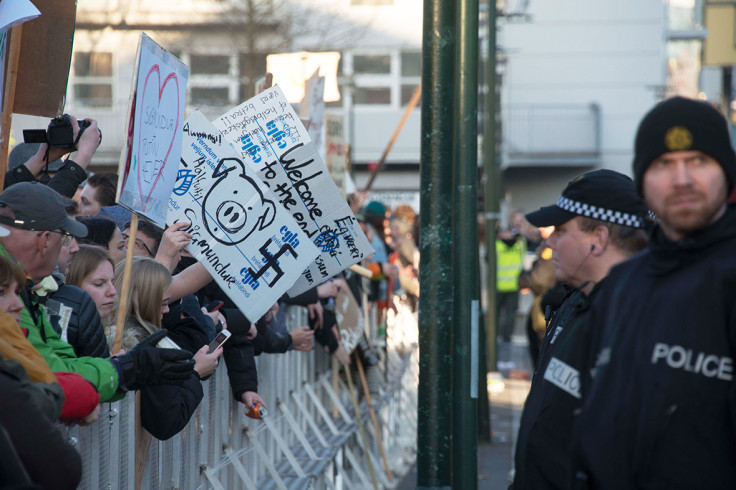Panama Papers: Pirate Party upbeat as Iceland's Sigmundur Gunnlaugsson resigns

The crows are circling over Sigmundur Gunnlaugsson. A day after footage of Iceland's prime minister walking out of an interview over questions about his tax affairs, tens of thousands have taken to the streets to demand his resignation.
Iceland's opposition party the Social Democratic Alliance is planning a no confidence vote over the allegations that Anna Sigurlaug Pálsdóttir, Gunnlaugsson's wife, owns a tax haven-based company with large claims on Iceland's collapsed banks.
Iceland may be small but the impact of the financial crisis on the nation has been disproportionately large. The collapse of Icelandic banks Kaupthing, Landsbanki and Glitnir in 2008 brought the island of 330,000 to the brink, leading to high unemployment, rising inflation and street protests.
The crisis led to the unseating of the coalition government between the right wing Independence Party and the left wing Social Democratic Alliance. New political forces emerged including, by 2009, a new party called the Citizen's Movement.
After the elections they partnered with the Green Party and formed a government after 18 consecutive years of rule by the Independence Party. The government made headlines for handing stiff sentences to bankers and applying to join the European Union, but struggled to maintain its support.
Amidst a divisive debate over EU membership and high unemployment, the alliance fell again in 2013 and a right wing coalition rose to power, led by Gunnlaugsson. It reneged on a promise to hold a referendum on EU membership and by the middle of 2015, thousands of protestors had taken to the streets.
Benjamin Leruth, a research associate in politics and social policy at the University of Kent, said that it is difficult to imagine that Gunnlaugsson can survive the Panama Paers scandal. "The Panama Papers will exacerbate tensions between politicians and the population. It is inconceivable that Gunnlaugsson can hold onto power given the allegations against him," he said Tuesday.
The stage is set, he said, for Birgitta Jonsdottir, who co-founded the Icelandic Pirate Party, to play a role in future government. Polls have the party at 36.1% of the vote and Jonsottir has seized on anger over the Panama Papers to encourage further protests today.
#PanamaLeaks | "He's doing tremendous damage to Iceland's reputation" @birgittaj on Iceland's PM@6:30pm pic.twitter.com/77AhNemm8M
— As It Happens (@cbcasithappens) April 4, 2016
Any successes in Iceland for the Pirate Party, which has branches in a number of other Nordic and European states, could spread elsewhere in Europe, he said. "So far, the electoral success of these groups has been limited to Iceland and, to a lesser extent, Sweden and Germany. They have tended to be seen as single-issue parties. Julia Reda is currently the only Pirate elected in the European Parliament," he said.
"However, should the people of Iceland begin a peaceful revolution, it could increase the visibility of other Pirate parties across Europe, and possibly lead to the emergence of a successful transnational political movement."
Gunnlaugsson has since stated that his wife's overseas assets were taxed in Iceland and that he had put the interest of the public ahead of his own in dealing with the financial claims. He has steadfastly refused to consider resigning.
© Copyright IBTimes 2024. All rights reserved.






